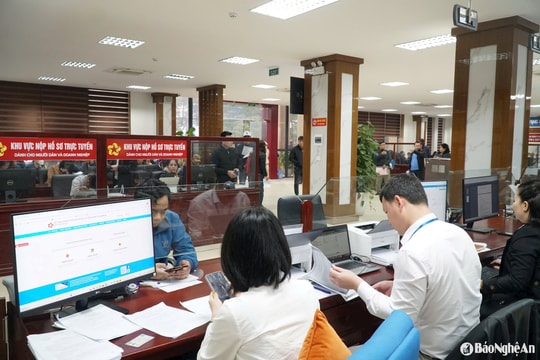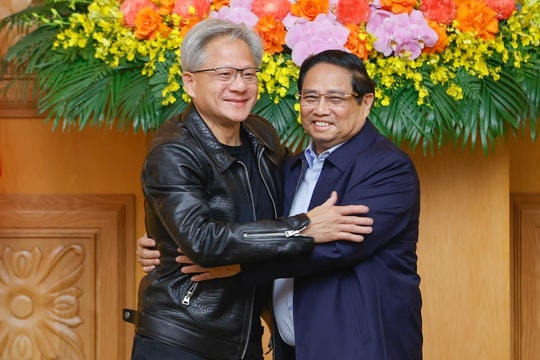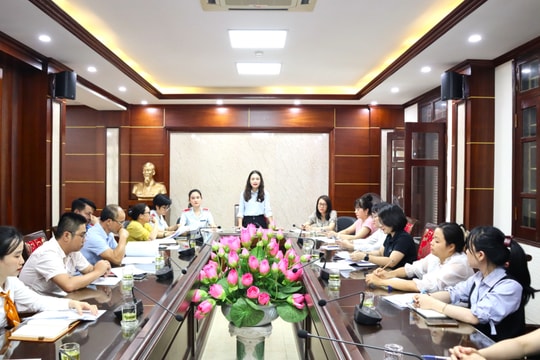Education and fingerprints
(Baonghean.vn) - To gradually educate to limit "uniformity" and imposition, aiming at individualization for each learner is not easy, requiring us to be patient with the spirit of the sower.
When I was in school, from high school to university, I never heard any teachers talk about being yourself, but often asked students to follow the example of this or that friend.
When I started teaching, in the past 25 years, I never told my students to be themselves. Although I was not like many of my colleagues who photocopied good essays and distributed them to students before exams, or even forced students to memorize so-called model essays written by themselves, I also read to my students many good essays and implicitly encouraged them to imitate. And of course, many students got high scores in exams. I was proud and never worried about the method I used.
In the past 10 years, thanks to the internet, integration with the world, reading and listening a lot, I have re-realized many issues. One of the typical views of Americans is “respect the difference”. One of the leading education systems in the world, Finland, defines the purpose of education as helping students realize who they are, what their abilities are and develop those abilities to contribute to society.
The Creator has been very miraculous and marvelous in creating each human being in this world over millions of years, hundreds of billions of people are living and have passed away, yet each person's fingerprints are different, even those of identical twins and triplets. And then, each person will live with a different personality, a different fate. Thus, the Creator's intention is clear: each person is different.
The mission of education, in the original sense of the word, is to instruct, guide, and care (in Vietnamese, “education” is a word of Chinese origin: “giao” means to teach, “duc” means to raise; in English, “education” has the Latin root ēducātiō which means to nurture, to raise). So, the purpose of education is to help the educated develop better.
All education in all periods has the same basic purpose.
However, up to now, in the first half of the 21st century, we see that there are peoples and countries that have reached the peak of prosperity and civilization; meanwhile, there are still peoples and countries that are still immersed in poverty and darkness. The difference is not due to natural resources, but has been proven to be due to human resources, or in other words, the way of developing and exploiting human resources, the way of education.
Countries through their education system all want their people to develop better, but the results are different, perhaps due to different concepts of educational purposes, meaning that "better development" is not the same. In recent years, many people have discussed the so-called "philosophy of education". The 14th National Assembly in its 6th session is discussing the Draft Law on Education (amended), and the issue of educational philosophy is also hot.
In recent years, with the open mechanism for diversifying school types, some private schools have grasped the educational trends of the times, they have been gradually building and implementing according to the educational philosophy of advanced countries. However, to both exist and achieve many goals at the same time when being in the general education system of the whole country with heavy examinations, to pursue a modern and humanistic educational philosophy is extremely difficult.
Now, I want to teach my students to think differently and write differently from what I teach and what is in the book. But that can put them at risk when taking the test, their answers are not the same as the answers, they can lose the opportunity to get into a good school. And if they are trained to think differently, speak differently, and dare to express their differences, they may not only lose the opportunity but may even be in danger. If that happens, the purpose of education that I propose “to help people develop better” may fail.
In education, the failure of the student is also the failure of the teacher, and vice versa.
Therefore, a unified educational perspective for the entire system is needed.
To gradually reduce the “uniform” and imposition of education, aiming at individualization for each learner is not easy, it requires us to be patient with the spirit of the sower. And the spirit alone is not enough, it requires a lot of investment in students of pedagogical colleges and current teachers, and a lot of investment in school facilities. If a class has more than 30 students, the teacher must also be botay.com.
What is also extremely important is that the environment outside the school, that is, society, accepts the product of education "each person has his own style" and continues to create conditions for the "tree" to grow well, providing shade for life.
.jpg)

.jpg)




